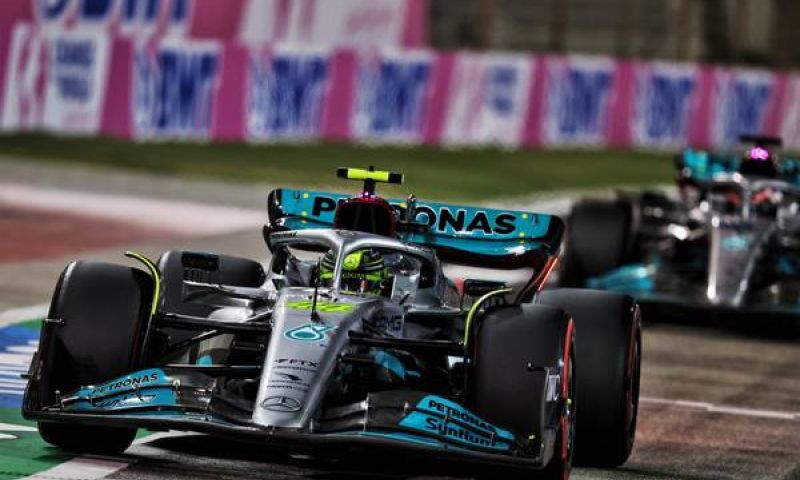Column

F1 Engine Freeze | Are Mercedes down on power with new E10 fuel?
After running with the best engine in Formula 1 for the past eight years, have Mercedes dropped down the rankings just as a power unit development freeze comes down on the sport? The Mercedes car in Bahrain has struggled with porpoising and finding the right set-up to combat that, but are they also down on power?
Looking at it suspiciously
Of course, this is just one Grand Prix weekend and hard conclusions cannot be drawn. But after just one meaningful session of the 2022 Formula 1 season, there's a trend in the data. Not a single Mercedes customer car reached Q3 in Bahrain, in fact you have to go down to P13 with Lando Norris to find a Mercedes powered McLaren.
Four of the bottom five on the grid are powered by Mercedes whereas four of the top seven are powered by Ferrari. The Bahrain International track is a good test for power. With four significantly long straights, there's a serious power focus at this circuit.
In Sakhir, the first and third sectors are virtually mirror images of each other. These two sectors will really test the power of the cars and porpoising with three long straights in these two sectors. The power circuit fact is also reflected in the historical statistics. In the turbo-hybrid era, only Mercedes and Ferrari have race wins in the Bahrain Grands Prix. Red Bull haven't managed to record a victory since Sebastian Vettel in 2013. However, last year Verstappen and Red Bull secured pole position and came extremely close to winning the event. Teams that do well in Bahrain would indicate (not confirm) they have a good engine.
Speed Trap Times
View this post on Instagram
In Formula 1, a number of different things can affect the maximum time through a speed trap. This includes a slipstream from a car in front having a positive effect, or a certain aero package also causing problems and therefore a negative effect on the quickest speed. The porpoising that Mercedes experienced would also slow them down as they lose performance through the straights.
The speed trap is located just before the turn 1 braking zone, at 158m from the corner. This is an area that really troubled Mercedes' porpoising during testing and Friday practice, with sparks often seen spraying from the rear of the W13 at regular intervals.
However, a similar trend can be identified. Five of the bottom six are filled by Mercedes powered cars. Quite frankly, the Aston Martin drivers are well off the pace in the speed trap coming in at 3km/h slower than Mercedes themselves, and 13km/h slower than Sergio Perez. The top is locked out by Red Bull powertrains, with the Renault engine taking third and fourth.
What's happened?
We're working with minimal data here, but there are trends to suggest this is a real issue for Mercedes. They've gone from having the best engine in Formula 1, to now seemingly dropping below Ferrari, Red Bull power trains and Renault. All right before an engine freeze.
Perhaps the Mercedes PU doesn't work as well with the new cars for the 2022 season. Or they could be struggling with the new E10 fuel. There was a lot of talk through the winter by the likes of Helmut Marko on how the fuel was making more of a difference than expected. Or maybe Mercedes are having to turn down the engines to try and counteract the porpoising. At this stage, we just don't know for certain. A lot of stakeholders in Formula 1 are pretty confident Mercedes will be able to unlock the potential in the car once they make a few tweaks to solve porpoising, but do they have more issues than that?
It's something to look at for in Sunday's Bahrain Grand Prix, before heading to Saudi Arabia next weekend. And that on track, you need a strong engine.